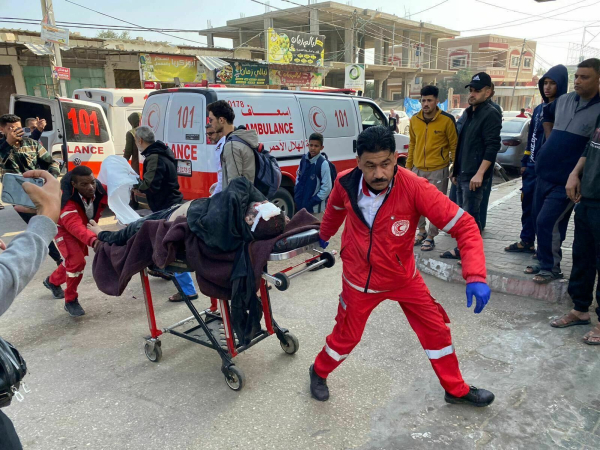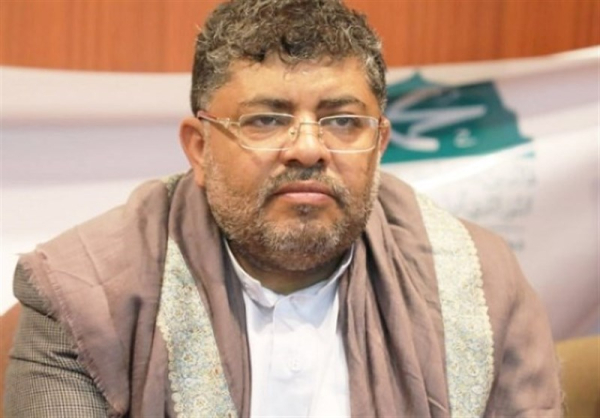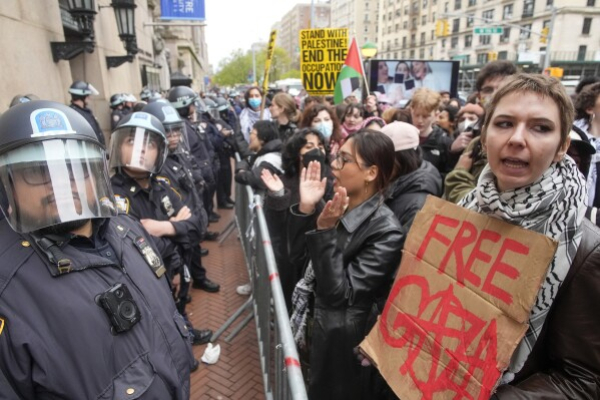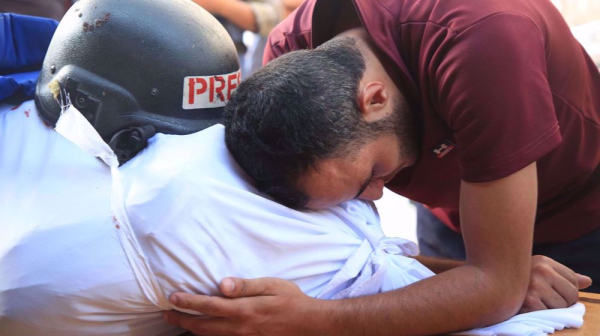zarezadeh
Death toll soars past 350 as Israel launches massive airstrikes across Gaza
The Israeli military has killed at least 356 Palestinians, mostly children and women, throughout the Gaza Strip’s entire expanse during a large-scale violation of Tel Aviv’s ceasefire agreement with the Gaza-based resistance movement Hamas.
Reports said those killed in included at least 77 people in Khan Younis in southern Gaza and at least 20 people in Gaza City in the north.
Hundred of others were also wounded during the rampant bloodletting, Palestinian news agency Sama reported on Tuesday.
According to the agency, the raids did not spare any part of the already war-battered and mostly devastated coastal sliver, targeting residential structures, schools, and refugee centers.
Reporting on the fresh deadly escalation, Qatar’s Al Jazeera television network reported that explosions had rang out throughout Gaza’s northeastern areas, where the regime’s spy aircraft and warplanes have been engaging in extensive overflight.
The ceasefire took effect in January in the hope of ending the regime’s 15-month-plus war of genocide against Gaza that began after Hamas and its fellow resistance groups from the Palestinian territory launched a historic operation against the occupied Palestinian territories.
The operation saw the fighters venture deep inside the territories, encircling strategic Israeli bases and ensnaring 240 Zionists, including some American-Israelis.
Since initiation of the ceasefire deal, the regime has been routinely violating it besides blocking the entry of vital aid items into Gaza, including foodstuffs, medicine, and water, in an attempt to pressure Hamas into releasing those of the captives, who remained in the group’s captivity, in one batch.
Hamas has released 25 living captives and the remains of eight others in exchange for more than 2,000 Palestinian prisoners during the implementation of the first phase of the deal.
The movement has denounced Tel Aviv’s efforts at sabotaging the agreement, urging that release of the remaining captives is conditioned upon implementation of a second phase.
Earlier, the regime’s Ma’ariv newspaper reported, citing its sources, that Tel Aviv had turned down a proposal for, what it called, “selective release” of the American captives.
The sources said the regime has told the United States that diplomatic efforts towards enabling release of the remaining captives had ended.
They also said the regime’s so-called “security cabinet” had allowed its prime minister Benjamin Netanyahu and minister for military affairs Israel Katz to determine the time for resumption of the genocide.
Netanyahu’s office, meanwhile, alleged that the regime had resumed its military attacks on Gaza after, what it termed as, Hamas’ turning down Washington’s proposals for extension of the ceasefire.
This is while Hamas has been constantly engaging with Qatari and Egyptian mediators towards keeping up the ceasefire, despite the disruptive Israeli efforts.
More than 48,000 Palestinians, most of them women and children, have perished during the genocide in addition to hundreds more who have been killed as a result of the Israeli violations of the deal.
Trump's green light
The White House says Israel consulted with US President Donald Trump's administration before launching its overnight wave of strikes in Gaza.
"The Trump administration and the White House were consulted by the Israelis on their attacks in Gaza tonight," Press Secretary Karoline Leavitt said.
New forced displacement
The Israeli military’s spokesman Avichay Adraee ordered residents of the several Gaza areas to “evacuate immediately”, saying their neighborhoods will become “dangerous combat zones”.
Adraee said civilians in the areas of Beit Hanoon, Khirbet Khuza’a, Abasan al-Kabira and Abasan al-Jadida should head to shelters in western Gaza City or Khan Younis.
Hamas: Israel exposes captives to 'unknown fate'
Reacting to the most recent massacres, Hamas voiced reprehension over Netanyahu and his “Nazi” administration’s resuming their aggression and genocidal war against defenseless civilians in the Gaza Strip.
“We hold the criminal Netanyahu and the Nazi-Zionist occupation fully responsible for the repercussions of the treacherous aggression on Gaza, and for the defenseless civilians and our besieged Palestinian people, who are subjected to a brutal war and a systematic policy of starvation,” it added.
The regime, the group lamented, had decided to “overturn the ceasefire,” exposing the captives to an “unknown fate.”
Hamas has previously reported the death of scores of the captives as a result of incessant and indiscriminate Israeli bombardments of Gaza.
“We demand that the mediators hold Netanyahu and the Zionist occupation fully responsible for violating and overturning the agreement,” the group asserted.
Hamas also urged the Arab world, including its major institutions, as well as notable international organizations to take a firms stance concerning the aggression.
The United Nations and its Security Council has to press Tel Aviv into abiding by the UNSC Resolution that mandates an end to the Israeli aggression against Gaza and complete withdrawal of all Israeli forces from the territory, the group underscored.
It finally called for global protests, urging that “the free people of the world have to raise their voice in rejection of the resumption of the Zionist war of extermination against our people in the Gaza Strip.”
Netanyahu's lifeline to escape internal crises
Senior Hamas official Izzat al-Rishq said, “Netanyahu has decided to resume the genocidal war, considering it a lifeline to escape his internal crises.”
“The enemy will not achieve through war and destruction what it failed to achieve through negotiations.”
He added that, “Mediators are required to reveal the truth about Netanyahu’s betrayal of the ceasefire agreement and to hold him solely responsible for fueling the fire in Gaza and the region.”
Al-Rishq asserted that, “Military pressure and brutal aggression will not break the will of our people and our resistance.”
Press TV’s website
‘Jihad of victory’: Palestinian groups hold US accountable for renewed genocide, vow resistance
Palestinian groups have blasted Israel for resuming its genocidal war on the Gaza Strip, as the regime conducts its deadliest aerial assaults on the besieged territory since a January ceasefire.
The condemnations came on Tuesday, after the Israeli strikes killed over 350 Palestinians and injured 1,000 others across Gaza in a blatant violation of the truce with the Hamas resistance group.
Israeli prime minister Benjamin Netanyahu said he had ordered the air raids because of a lack of progress in the talks aimed at making Hamas release Israeli captives without a troop withdrawal from Gaza. Netanyahu's office said in a statement that “Israel will, from now on, act ... with increasing military strength."
Hamas said it viewed the Israeli attacks as a unilateral cancellation of the Gaza ceasefire, warning that the strikes expose the captives “to an unknown fate.”
The Palestinian Islamic Jihad resistance movement said the renewed aggression will neither give Israel the upper hand over the resistance nor extricate Netanyahu and his regime from the crises they are escaping from.
"Rather, it will further weaken them and accumulate more failures, leaving them humiliated and submissive," it added.
The Islamic Jihad, which is based in Gaza, also noted that Israel will not achieve what it has been unable to achieve during the genocide thanks to the steadfastness of oppressed Palestinians and the bravery of resistance fighters.
Meanwhile, the Popular Front for the Liberation of Palestine (PFLP) said the occupation violated the Gaza truce by its brutal strikes with prior planning and American partnership.
"All international parties must act immediately to stop the war of extermination resumed by the ... war criminals." it pointed out.
The group also urged Arab people and those seeking freedom to condemn Israeli atrocities and besiege the embassies of the occupying entity and the United States.
It further called on the Arab League to work towards the lifting of the Israeli siege on the Gaza Strip and ending the war of extermination against Palestinians.
Additionally, the Palestinian Mujahideen Movement held the US administration responsible for the Zionist regime’s resumption of its genocide in Gaza.
Netanyahu and his criminal cabinet, it said, "will not succeed in breaking the will of our people and their resistance, just as they have failed throughout more than 15 months of genocide and ethnic cleansing."
Mediators failed to 'deter Zionist arrogance': Ansarullah
Yemen's Ansarullah resistance movement condemned in the strongest terms fresh Israeli Gaza raids and horrific massacres, saying they were conducted amid unlimited American support for the usurping regime.
The group's political bureau censured the parties mediating and guaranteeing the Gaza ceasefire for failing to "deter Zionist stubbornness and arrogance."
Israel launched its brutal Gaza onslaught on October 7, 2023, after Hamas carried out a historic operation against the usurping entity in retaliation for its intensified atrocities against the Palestinian people.
The Tel Aviv regime failed to achieve its declared objectives of freeing captives and eliminating Hamas despite killing more than 48,000 Palestinians, mostly women and children, in Gaza.
Israel accepted Hamas’s longstanding negotiation terms under the three-phase Gaza truce, which began on January 19.
Later, however, Israel refused to move forward to the second stage of the ceasefire and blocked the entry of all humanitarian aid into Gaza in breach of international law.
Press TV’s website
Al-Houthi: The Yemeni nation is not afraid of American terrorism
Mohammed Ali Al-Houthi, a member of the Supreme Political Council of Yemen, announced that American terrorism does not instill fear in the hearts of the Yemeni nation following the US and British attacks on Yemen that left dozens of martyrs.
According to the Tasnim News Agency International Group, Al-Houthi stated in a speech to the marchers present in Sab'in Square in Sanaa: The Yemeni nation does not in any way fear American attacks, bombings, arrogance and terrorism, and only fears God.
He continued by saying to the oppressed people of Gaza who are still under siege by the criminal Zionist regime: We are always with you and we will never abandon you.
Addressing the American officials, Mohammed Al-Houthi said: Do whatever you like, because we have no fear except God. Our positions are correct and principled positions, but Trump's positions are worthless and illegitimate.
He also continued: "Your participation in the attack on Gaza or the bombing of Yemen is not new, you have been participating in the attacks and bombing of our country for more than ten years." Al-Houthi added: "We consider what happened at the hands of you Americans in Yemen as an attack and a terrorist act, and we are waiting for an escalation of tension in response to your escalation."
Why did Trump attack Yemen?
Donald Trump has opened a new case in Yemen at a time when his promises and threats in other foreign policy cases have fallen flat.
According to the Tasnim News Agency International Group, since he took office in the White House, Donald Trump, the President of the United States of America, has been forced to backtrack on almost every sharp threat or optimistic promise he made in the field of foreign policy.
Trump's backtracking on threats
He had said this more than 10 times during the election campaign that he would end the war in Ukraine within 24 hours if he became president, but now he has not only not unraveled any of the knots in this case, but has also further complicated its knots and has finally been forced to say that his election promises were a joke.
Regarding Gaza, he set a deadline of several days last month, saying that if Hamas did not release all prisoners “by 12 noon on Saturday,” the gates of hell would be opened to them. Trump’s promised Saturday arrived, but nothing happened, and he threw the ball into Israeli territory, saying that Israel must decide what to do.
He has also backed away from his plan to relocate Gaza residents. Trump has repeatedly said that he intends to relocate Gaza residents to Jordan or Egypt and turn the region into a “Middle East Riviera,” but after facing global condemnation and Palestinian resistance, he said just a few days ago that “no one said the people of Gaza should leave their land.”
In the area of the tariff war, the situation has been just as dire for Trump, if not more so. He had threatened to double tariffs on steel and other metals from Canada to 50 percent, but only backed down hours later when Ontario countered.
On auto tariffs, he suspended tariffs on autos in Mexico and Canada for a month after talks with three U.S. automakers.
Trump's promises to annex Greenland, Panama, and Canada have al
What is the difference between a valid prayer and an accepted prayer?
There is a difference between the validity of actions and the acceptance of actions; what is mentioned in jurisprudence in terms of the conditions of the person praying, such as clean clothes, a clean body, a clean place, correct recitation, etc., and which refers to the appearance of the prayer, will cause the prayer to be valid; not its acceptance; because the conditions for acceptance are related to the inner nature of worship and its spiritual and mystical effects.
The validity of a prayer means that there is no qadha, return, or punishment, and the person has fulfilled his duty; but the acceptance of a prayer has other conditions, including the presence of the heart, eating halal food, and the absence of a forbidden morsel in the body, etc.
One of the conditions for acceptance that God states in the Quran is piety; In verse 27 of Surah Al-Mandah it is stated: And recite to them the story of the two sons of Adam in truth: When each of them did something to draw near (to Allah), but it was accepted from one and not accepted from the other (the brother whose deed was rejected said to the other brother): “By Allah, I will kill you!” (The other brother) said: “(What is my sin? Because) Allah accepts only from the righteous!” Just as transgression prevents the acceptance of worship; in verse 53 of Surah At-Tawbah we read: Say: “Spend (in whatever way you wish) willingly or unwillingly, it will never be accepted from you, for you are a rebellious people.”
UN experts slam ‘disproportionate’ arrests of pro-Palestinian students in US
US campuses including Columbia University in New York were rocked by student protests against Israel’s war in Gaza following the Hamas-led October 7, 2023 attacks, drawing accusations of anti-Semitism.
Immigration officers arrested Mahmoud Khalil, a leader of protests at Columbia, on the weekend of March 9-10 after US President Donald Trump pledged to deport foreign pro-Palestinian student demonstrators.
The White House later said authorities had supplied a list of other Columbia students who officers were seeking to deport over their alleged participation in protests.
“These actions are disproportionate, unnecessary, and discriminatory and will only lead to more trauma and polarisation negatively impacting the learning environment within university campuses,” a group of United Nations-appointed experts said in a statement.
“These actions create a chilling effect on the rights to freedom of expression, assembly and association,” they added.
The independent experts, appointed by the UN to report on rights issues, urged US authorities “to cease repression and retaliation, including in the form of arbitrary detention of US lawful permanent residents, and removal of international students who have participated in university protests”.
Educational, social and health effects of fasting
Fasting has various dimensions and has many material and spiritual effects on the human being, the most important of which is its "moral dimension and educational philosophy".
1. Educational effects
1-1. Softening the soul
The human soul is always managing the body, and the body without the management of the soul is like a ship without a captain. In the month of Ramadan, due to abstaining from eating and drinking and limiting it to specific hours, as well as controlling the senses (such as the eyes, ears and all channels of information entering the mind), more leisure is provided for the soul and spirit. The activity of the soul to deal with material and worldly matters decreases and the possibility of dealing with spiritual matters increases. As a result, the soul enjoys greater softness.
1-2. Strengthening the will
God has arranged the fasting program in such a way that a person must refrain from eating and drinking at a certain time, and at a certain time, he can freely eat and drink and enjoy halal pleasures.
The obligation for people to strictly implement this program and repeat it throughout a month is a very suitable exercise for accustoming the soul to things other than what it was accustomed to in other months, and this action strengthens a person's determination and will.
1-3. Controlling Instincts
While fasting, the fasting person should turn a blind eye to food, water, and other pleasures (such as sexual pleasure) and prove that he is not like animals, confined to a stable, water, and grass. He can take control of his soul and dominate his desires and passions, which causes his instincts to come under his control and, in addition, there is a moderation in their use. In short, fasting elevates man from the animal world and ascends to the world of angels.
Piety and piety play a very important role in the education of a Muslim's Islamic morality, and the best way to achieve this worthy quality is fasting. The Quran says about it: "That you may be righteous"; Al-Baqarah (2), verse 183. That is, the result and the ultimate cause of fasting is piety from the forbidden things of God.
When the Prophet (peace be upon him and his family) enumerated the virtues of Ramadan and fasting in his sermon of “Sha’baniyah”, the Commander of the Faithful Ali (peace be upon him) asked: What are the best deeds in this month? He said: “Al-Wur’ ‘an mahram Allah”; Ayoun Akhbar al-Rida, vol. 2, p. 266. ; “It is abstinence and avoidance of sins and transgressions.” Therefore, fasting is a factor that prevents sin and a factor that suppresses the rebellious soul. By acting on this divine command, a person well revives the spirit of piety and piety in himself; because with fasting, it becomes easier to correct and train the soul; because hunger and other deprivations of fasting extinguish the rebellious flames of animal instincts and carnal desires.
Filling the stomach becomes the basis for many abnormalities and the stimulation of lusts, immersion in forbidden things and the emergence of false desires in the soul; As stated in a hadith: “I fear for you from the stomach and the private parts”; Bihar, vol. 1, p. 368. “I fear for you from the stomach and the private parts.” If the stomach is chaste and is content with what is necessary and avoids what is forbidden and doubtful, then undoubtedly the private parts will also be chaste. The chastity of these two organs will be a very good basis for spiritual joy and purity of the heart and inner self.
1-4. The spirit of sacrifice and altruism
Man is a social being, and a perfect man is one who grows in all dimensions of existence. Fasting develops the social dimension of man along with his other dimensions; in such a way that it is a lesson of equality and equity among the members of society. By practicing this religious injunction, the able-bodied people understand the situation of the hungry and deprived in society in a tangible way, and following that understanding, they come to the conclusion that they should think about the poor and deprived. If attention to the situation of the hungry takes on a sensory and objective aspect, it has a greater effect, and fasting gives a sensory color to this important social issue. With the growth of this social dimension, man does not become indifferent to his fellow human beings and feels the widespread social pains (such as poverty and hunger), and this wise saying of Saadi becomes true:
Human beings are members of each other, who are created from one essence.
If one member suffers, the other members will not be spared.
Really, if the rich countries of the world fasted for a few days a year and tasted hunger, would there still be so many hungry people in the world? Will millions of people face malnutrition and food shortages?
Two. Health effects
Without a doubt, the miraculous effect of abstinence in treating various physical and mental diseases has been proven in medical science. The cause of many diseases is overeating of various foods. The Prophet of God, may God’s prayers and peace be upon him and his family, said: “And know that the stomach is the house of disease and that health is the cure.” Bihar al-Anwar, vol. 58, p. 307, (Beirut, Al-Wafa Foundation).; “The stomach is the center and home of every pain, and abstinence [from inappropriate foods and overeating] is the basis of every healing medicine.” The origin of many mental illnesses is wrong thoughts, suspicions, sins, and irrational and illogical cognitions, and fasting, by creating restrictions, strengthens both the stomach and digestive system, and by controlling thoughts and avoiding sins, it prevents the human soul from pollution. In other words, fasting burns the body’s waste and excess and unabsorbed substances, and in fact, it “shakes the house” of the body and strengthens the soul by reciting the Quran and reciting special prayers. In short, fasting guarantees a person’s physical and mental health, and on this basis, the Prophet of Islam, may God’s prayers and peace be upon him and his family, said: “Fast until you become healthy.”; Ibid., p. 255.; “Fast until you become healthy.” Fasting, if taken in its proper conditions, has important educational, social, and health effects on humans. For further reading, see:
A. Alexis Sophorin, Fasting, a New Method for Treating Diseases, translated by Jafar Emami.
B. Seyyed Hossein Mousavi Lahiji, Fasting, Treatment of Diseases of the Soul and Body, (Published by the Society of Seminary Teachers), Qom.
P. Abdul Karim Biazar Shirazi, A New Treatise on Medical Jurisprudence, Vol. 2, (Islamic Culture Publishing House).
T. Seyyed Reza Paknejad, The First University and the Last Prophet, Vol. 3; (Islamic Bookstore Publications).
IRIB World Service decries US-EU ban on Aqsa TV, urges action against media censorship
The head of the Islamic Republic of Iran Broadcasting (IRIB) World Service has condemned a recent decision by the United States and the European Union to ban the broadcast of al-Aqsa TV, calling on media activists to strengthen the front against Western media censorship.
Ahmad Norouzi issued a statement on Monday after the US and the EU threatened to impose heavy fines and bring criminal charges against satellite providers broadcasting the Gaza-based channel. It followed the television network's suspension from the French satellite provider Eutelsat after an Israeli complaint.
Norouzi said that al-Aqsa TV was not only removed from all European and American satellites in "a joint US-EU plot," but also received threats of sanctions from satellite companies based on a fake anti-terrorism law.
"This desperate act came after 25 colleagues of the network sacrificed their lives to deliver the voice and images of the oppressed people of Gaza and were martyred in violation of all international rules," he said.
"It is another example of the brutality of the usurping Israeli regime ... throughout its history of occupation."
Norouzi also noted that the US and European leaders had shown a "humiliating reaction" to the enlightening role played by al-Aqsa TV.
The IRIB World Service "calls on all media activists in the field of resistance ... who have now lost one of the most important media outlets engaged in exposing Zionist crimes, to condemn this move and strengthen their opposition to Western media censorship."
The Arabic-language channel, affiliated with the Hamas resistance movement, has been a crucial source of information about the Israeli genocide in Gaza and violent attacks in the West Bank.
In a statement, the channel vowed to continue its mission despite the "unjust" ban.
The US-EU decision is inseparable from the open war on Palestinian media, which has culminated in the cold-blooded targeting of journalists, it pointed out.
"The occupation assassinated more than 25 journalists from the channel's crew and destroyed its headquarters in the Gaza Strip, in a desperate attempt to silence the truth."
Press TV’s website
Was the entire Quran revealed in the month of Ramadan?
Regarding the quality of the revelation of the Quran, two types of verses can be classified:
1.
Verses that indicate the revelation of the Quran on the Night of Power and the month of Ramadan; such as verse 185 of Surah Al-Baqarah, verse 3 of Surah Al-Dukhan, and verse 1 of Surah Al-Qadr.
2.
Verses that indicate the gradual revelation of the Quran over a period of 20 to 23 years; such as verse 106 of Surah Al-Isra’ and verse 32 of Surah Al-Furqan. Here, one may ask: How can we reconcile these two groups of verses and how is the time of the Prophethood acceptable with the statement that the Quran was revealed on the Night of Power?
The answers given by Sunni and Shiite scholars are as follows:
1. Most Sunnis and some Shiite scholars (such as Sheikh Mufid, Sayyid Murtaza, and Ibn Shahr-e-Ashhub) have answered: The meaning of the revelation of the Quran on the Night of Power is the beginning and commencement of the revelation, which was in the month of Ramadan; Because every event can be attributed to the time of its beginning. See: Muhammad Hadi Maraf, Al-Tamhid, Vol. 1, p. 113. Therefore, according to this group, the first group of verses does not stand in opposition to the provisions of the second group.
2. Some have said: What is meant by “Ramadan” is not Ramadan of a specific year; rather, it is its type; that is, on every Night of Power of every year, the Quran was revealed to the Prophet (peace and blessings of Allaah be upon him and his family) according to the needs of the people, and Gabriel recited it to his Prophet (peace and blessings of Allaah be upon him and his family) in times of need, by the command of Allaah. Fakhr al-Razi has given this possibility. See: Al-Tafsir al-Kabir, Vol. 5, p. 85. It is obvious that with this assumption, the first group is opposed to the second group.
3. According to some: The meaning of the first group is that the verses of the Quran were revealed in the month of Ramadan, and in this regard, attributing the revelation of the Quran to the month of Ramadan is correct. See: Sayyid Qutb, In the Shadow of the Quran, Vol. 2, p. 79.
4. Some - including Sheikh Saduq - believe that the Quran was revealed in its entirety on one night of Qadr - in Bayt al-Izzah or Bayt al-Ma’mur. Then it was revealed to the Prophet (peace be upon him and his family) gradually over a period of 20 or 23 years. This view is derived from some narrations. For example, Imam Sadiq (peace be upon him) says: “The Quran was revealed at one time in Bayt al-Ma’mur. Then it was revealed to the Prophet (peace be upon him and his family) over a period of twenty years.” See: Saduq, Al-I’tiqadat, p. 101; Bihar al-Anwar, vol. 18, p. 250. 5. Some other Shiite scholars (such as Fayz Kashani, Tafsir al-Safi, vol. 1, p. 41, and Abu Abdullah Zanjani, Tarikh al-Quran, p. 10) have said: The meaning of the revelation of the Quran is not the descent of its words; Rather, it refers to its truths and concepts, and also to the descent of the Quran to the heart of the Messenger of God, which is referred to in narrations as “Bayt al-Ma’mur.”
6. Allamah Tabatabayi, may God have mercy on him, distinguishes between the gradual and the sudden descent: “Anzal” is the sudden descent that includes the stage of concepts and truths and the level of rulings, and “Tanzil” is the gradual descent that includes the stage of pieces and the level of detailing the Quran. This view is derived from some Quranic evidence, including: “A book whose verses are wise, then they are explained in detail by a wise, knowledgeable person”; Hud (11), verse 1.
Allamah Tabatabayi, may God have mercy on him, has explained the reason for the need for the sudden descent as follows: “The Holy Quran has a sublime truth, an inner spirit, and a simple existence; Just as it contains a truth that has been detailed and analyzed in the form of words and phrases. Once, the same simple truth and the universal spirit, the closed and sublime Quran, from the Preserved Tablet - which is a level of divine knowledge - was revealed to the soul and spirit of the Holy Prophet (peace and blessings of Allah be upon him and his family) in a temporary form; because the one who is a teacher, a mentor, a herald, a warner and a mercy for the worlds, must know the main points, purposes and objectives of the call and the heavenly message and his book in a general and comprehensive way and become aware of the great divine teachings and the religion of guidance and the supreme truths of creation and the secrets of existence. For more information, see:
A. Al-Mizan, Vol. 2, pp. 15 and 18, Vol. 18, p. 139, Vol. 14, pp. 231 and 232.
B. Abdullah, Javadi Amoli, Quran in Interpretation, Tafsir Mozhozi, pp. 72-74..
Therefore, the reason for the partial revelation of the Quran is to become aware of the goals, plans, guidance and truths in a general and general way. It is necessary that the Prophet (peace and blessings of Allah be upon him and his family) benefited from this unseen knowledge and grace; although the gradual revelation and in accordance with the events and needs has a great effect on stabilizing the heart of the Prophet (peace and blessings of Allah be upon him and his family), and the order of the revelation of the divine verses is very helpful and useful for guiding mankind and providing a model for the formation of an Islamic civilization.
Among the above statements, the view of Allamah Tabataba'i has theological support; However, some researchers of Quranic sciences do not consider the late scholar's arguments complete and believe that what can be accepted as certain is only the gradual revelation and the virtue of the blessed month of Ramadan is the beginning of the revelation of verses from the Quran in it - as a book of human guidance. See: Muhammad Hadi, Ma'rifat, Al-Tamhid, Vol. 1, pp. 101-121.
Did the month of Ramadan and fasting exist in past religions?
The Bible Dictionary states: "Fasting has been common at all times among every tribe, nation, and religion, in times of unexpected sorrow and hardship." The Bible Dictionary, p. 427, quoted from: Tafsir al-Numno, vol. 1, p. 633.
It also comes from the Torah that Moses, peace be upon him, fasted for forty days: "When I went up the mountain to take the stone tablets (the tablets of the covenant that God made with you). Then I stayed on the mountain forty days and forty nights; "I neither ate bread nor drank water." Torah, Deuteronomy, Vol. 9, No. 9, quoted by: Tafsir al-Namno, Vol. 1, p. 632.
It also comes from the Gospel of Luke that the apostles of Christ fasted. Gospel of Luke, Vol. 5, No. 3533.
Fasting is a common practice among Jews; however, it is practiced only on the day of "Kippur" (Day of Atonement). On this day, Jews fast from the evening of the previous day to the evening of this day to atone for their sins, and they abstain from eating, drinking, bathing, and working, and engage in worship and seeking forgiveness in synagogues. Hossein Towfiqi, Introduction to the Great Religions, (Tehran, Samat, Taha and the World Center for Islamic Sciences, third edition, winter 1379), p. 94.


























